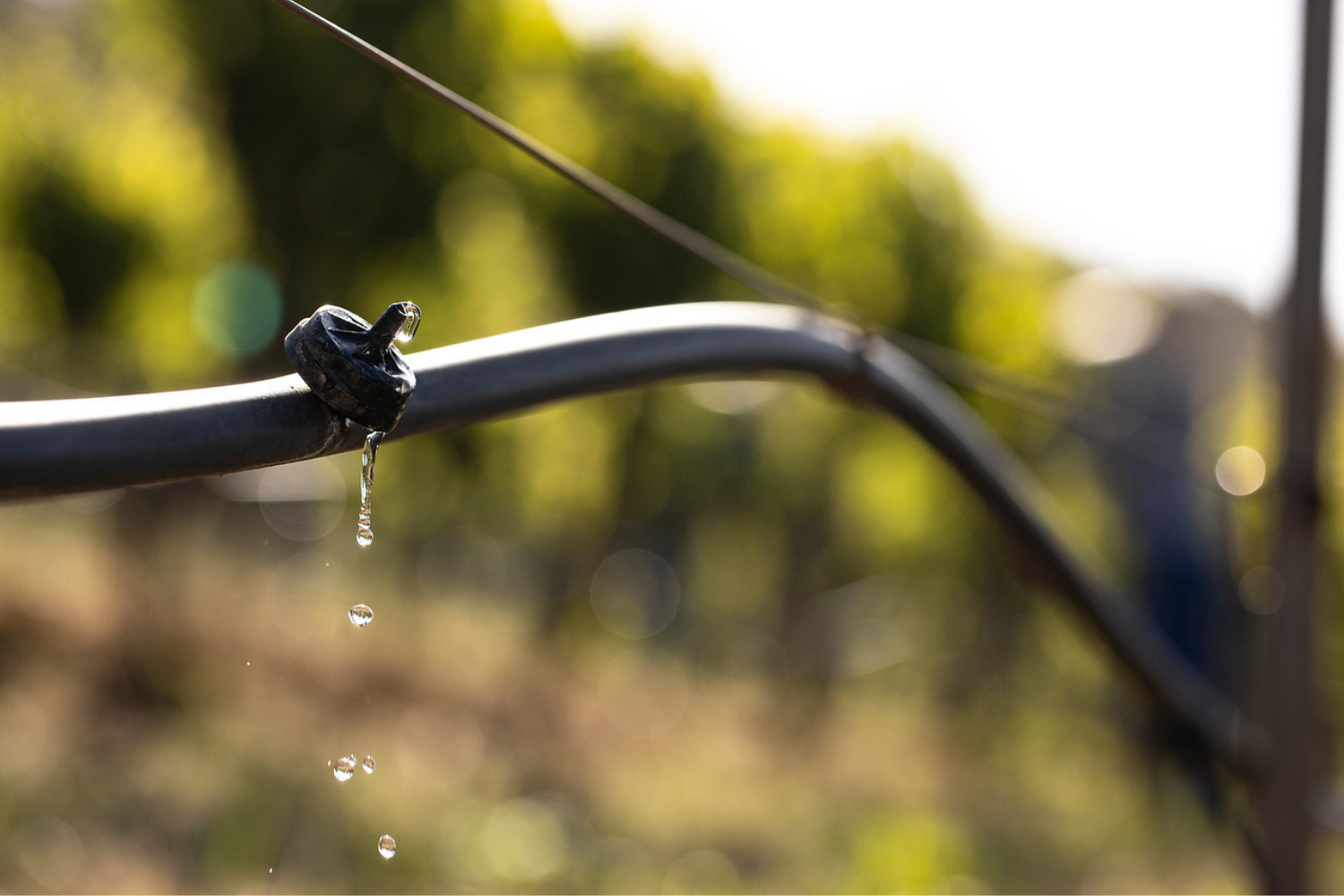Napa Valley grape growers are no strangers to drought. In fact, California has experienced a drought between 2012 and 2016 and since 2020 finds itself in a drought once again. With dry years seemingly growing in frequency and intensity, winemakers are facing new challenges with water regulations and competition, leading us to find creative and sustainable ways to adapt and continue producing high quality wines.
Deficit Irrigation
One of the more effective strategies Frank Family uses to conserve water is through a practice called deficit irrigation. “Through this farming strategy, we measure vine stress in various forms from soil moisture to leaf water potential, and irrigate only when the vines start to show stress,” says Brittany Pederson, the Director of Viticulture at Renteria, Frank Family’s contracted vineyard management company.

Utilizing the latest surface renewal systems and technological sensors, Frank Family closely monitors the needs of the vines to determine precisely if, when, and how much water to feed them. We use a drip irrigation system to deliver water directly to the plants that need it, while minimizing evaporative loss and maximizing grape quality.

Vines that are deficit irrigated will have less vegetative growth, smaller berries, and lower yields which are known to create extremely complex and concentrated wines. While its benefits abound, deficit irrigation requires serious commitment. “It’s certainly not a beginner’s tool,” says Pederson. “It demands a higher level of management and investment, but makes a huge difference in conserving water usage, improving labor efficiency, and optimizing grape quality.”
Carbon Farming
Another sustainable vineyard management technique that Frank Family employs is carbon farming. Essentially the idea is to capture more carbon from the atmosphere than we release into it. One way to achieve this is by composting grape stems, skins, seeds, and other winemaking by-products and returning them to the land to reduce erosion and sediment runoff and increase the soil’s capacity to hold water.

Additionally, Frank Family grows a permanent cover crop of various grasses, legumes, and clover in between the vine rows. We mow these cover crops each spring in order to help retain moisture and thereby reduce the need for irrigation. Through organic compost and cover crop usage, Frank Family is better able to manage the nutrient and water levels in our vines which translates into better-quality wine.

Looking Ahead
As Frank Family looks to the future of grape growing and the production of our wines, we are constantly thinking of new sustainable solutions. This year, we intend to complete our 10-year replanting process at Benjamin Vineyard which was strategically designed with drought conditions in mind. We changed the direction of the vine rows to follow the pattern of the sun and reevaluated rootstock and grape variety selection, opting for more drought-resistant options that are better suited for the clay loam soils and warm daytime temperatures of Benjamin’s prime Rutherford location.

While we have received a considerable amount of rain so far this vintage, the fact remains that droughts will sadly always be a recurring event in California. But Frank Family is honored to continue to be a leader of sustainability in Napa Valley in order to preserve this precious and limited resource and to craft beautiful wines for many generations to come.







